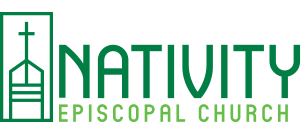As I stood at the door of the church with my young son in tow, saying goodbye to parishioners, I noticed a large group of first-time folks standing in line. The apparent “elder” of the group stepped up to me and said, “Whose child is that?”
His accusatory tone caught me off guard, yet I was able to quickly respond, “He’s my youngest son – I don’t believe we’ve met.”
“You’re right. We have not met. So is it fair to assume you’re married?”
Let me just say, this is not the general discourse I encounter as folks are leaving the church. Looking at my wife, who fortunately was just a few feet away, I responded, “Yes, let me introduce you to my wife.”
Immediately his entire affect began to change as he started to tell me a bit about his story.
“We are Roman Catholics, and we are sick and tired of abusive priests. I am glad to hear you’re married. I think our family will be joining your church.” And with that, the entire family shook my hand as they walked out the door.
When the Roman Catholic Clergy child sexual abuse came to light in the community where I was serving, it was devastating. The Roman Catholic Church had a strong footprint, and so a significant number of people in the community were impacted one way or another. Many longtime Roman Catholics left their Churches. A fair number of those folks in our neighborhood showed up at our church.
While we were happy to welcome them to our community, I was also acutely aware of their hurt, anger, and most prominently, a strong sense of betrayal. The need for pastoral care and healing was immense. With the news this week of the number of those abused in Pennsylvania, and the inaction toward the perpetrators, I feel yet again a deep sense of sadness.
While the Roman Catholic Church continues to deal with the issue of abuse and how to handle it, they are clearly not the only institution or organization who has left people feeling hurt, angry and betrayed. This of course includes the Episcopal Church.
We want to trust that when we send our young adults to college, they will be safe. We want to trust that when we enroll our children in sports, they will be safe. We want to trust that those who are caring for our elderly relatives are keeping them safe. We want to trust that the faith community we choose to be a part of will be a safe place.
Creating and ensuring the safety of all of God’s children is all of our responsibility. There is no greater example of “respecting the dignity of every human being” than making sure that all are safe. At its core, becoming a Beloved Community is becoming a community where all are respected and all are safe.
Source: Bishop Brian Prior – The Safety of All God’s Children
